May 29, 2025 | 20:01 GMT +7
May 29, 2025 | 20:01 GMT +7
Hotline: 0913.378.918
May 29, 2025 | 20:01 GMT +7
Hotline: 0913.378.918
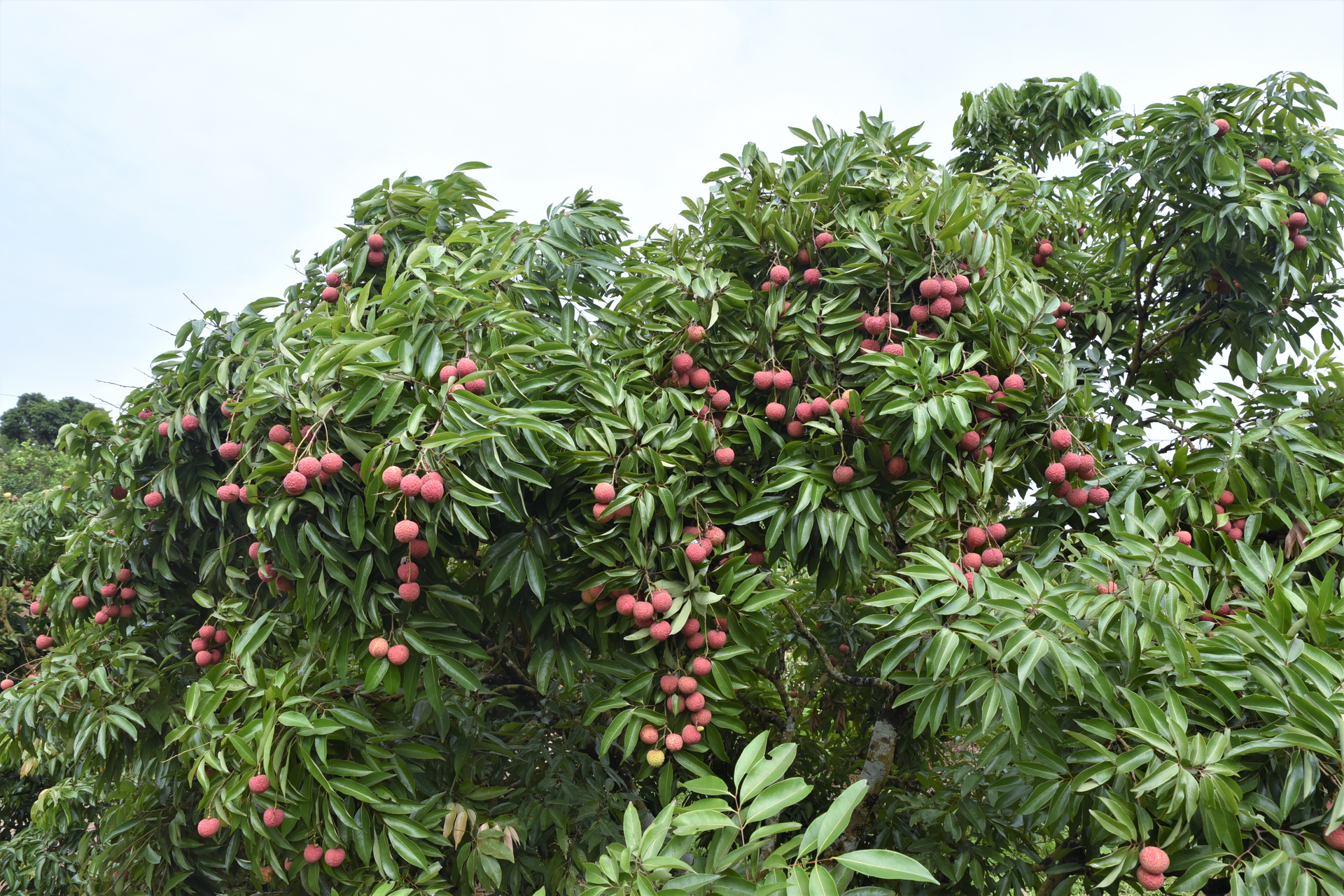
Organic lychee farm in Quy Son commune, Luc Ngan district, Bac Giang province. Photo: Pham Hieu.
During this time of the year, convoys of trucks are lined up at various lychee farms in Luc Ngan district, Bac Giang province from early morning to deliver this special product across the country.
Mr. Nguyen Minh Duc from Dong Giao village, Quy Son commune, Luc Ngan district participated in the province's organic lychee production model with 1 hectare of land. His lychee farm is expected to yield between 10 and 15 tons of lychee in 2023.
According to him, Bac Giang province's Sub-Department of Crop Production and Plant Protection Department coordinated with New AG Technologies Vietnam Joint Stock Company to assist farmers in implementing an organic lychee production model in Quy Son commune.
Consequently, the model will encourage additional farmers in the Luc Ngan lychee area to engage in lychee production as well as organic agricultural production in an ecological and sustainable manner; thereby meeting the increasingly strict requirements from export market and domestic consumption.
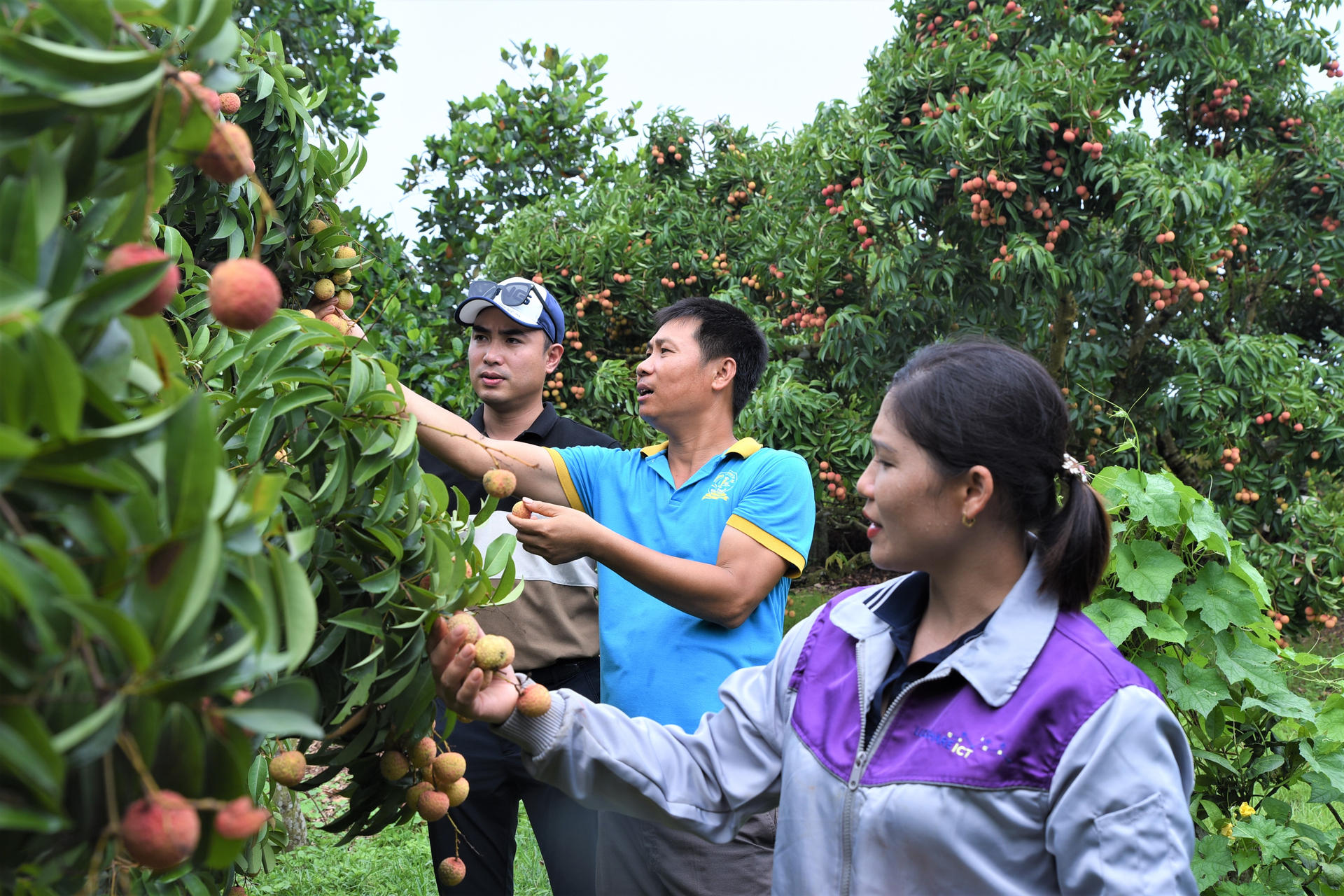
Businesses and people visiting organic lychee farms to make preparations for purchasing and exporting. Photo: Pham Hieu.
“This year, the Sub-Department of Crop Production and Plant Protection, and New AG Technologies Vietnam provided us with organic fertilizers and biological products for lychee production. Organic production has higher requirements and slightly higher costs compared to traditional production. However, it has the advantage of protecting the farmers' health and providing clean products for export and domestic consumption”, shared Mr. Nguyen Minh Duc.
According to Mr. Vu Van Men, Head of the organic lychee production cooperative group in Quy Son commune, organically produced lychee has a sweeter taste, low physiological drop rate, and high yield. Additionally, farmers are not concerned about the consumption stage due to product offtake contracts with businesses.
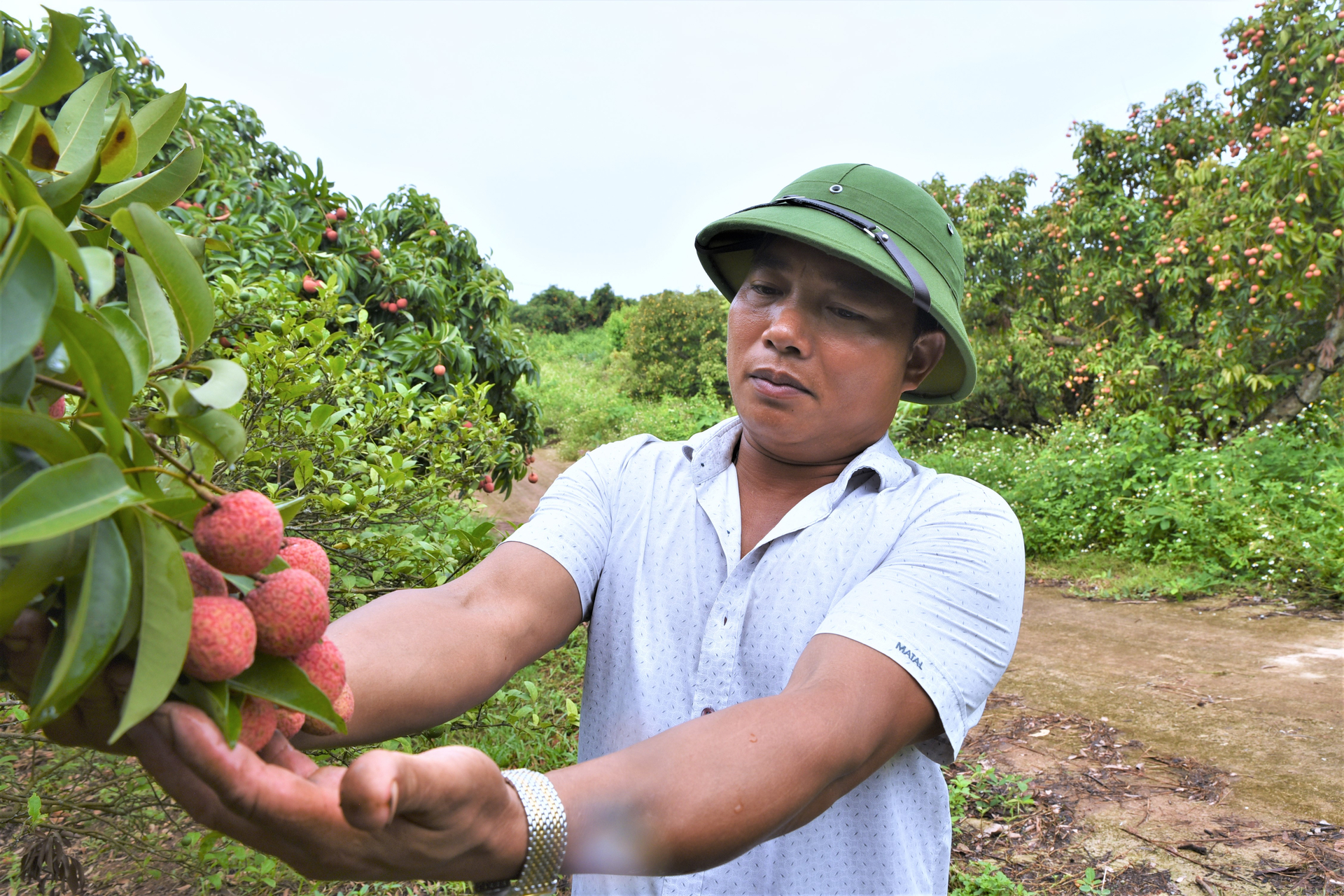
Organically produced lychee has a sweeter taste, low physiological drop rate, and high yield. Additionally, farmers are not concerned about the consumption stage due to product offtake contracts with businesses. Photo: Pham Hieu.
"At the very beginning of the season, a business have visited us and signed a contract to buy lychee from farmers. They commit to purchasing all of our produced grade I lychee. So far, farmers in the cooperative group have not even produced enough lychee to supply this single business", said Mr. Men excitedly.
According to Mr. Dang Van Tang, Director of the Bac Giang province's Sub-Department of Crop Production and Plant Protection, the participation of businesses is required for the effective and sustainable development of organic lychee production. Accordingly, businesses will link inputs and cover product consumption for farmers. Furthermore, organically produced lychee can appeal to domestic consumers as well as various export markets.
The key to trade promoton is determining the product quality factor. When the province chose to pilot the organic lychee model, the Sub-Department has guided farmers through the strict production process to meet export conditions.
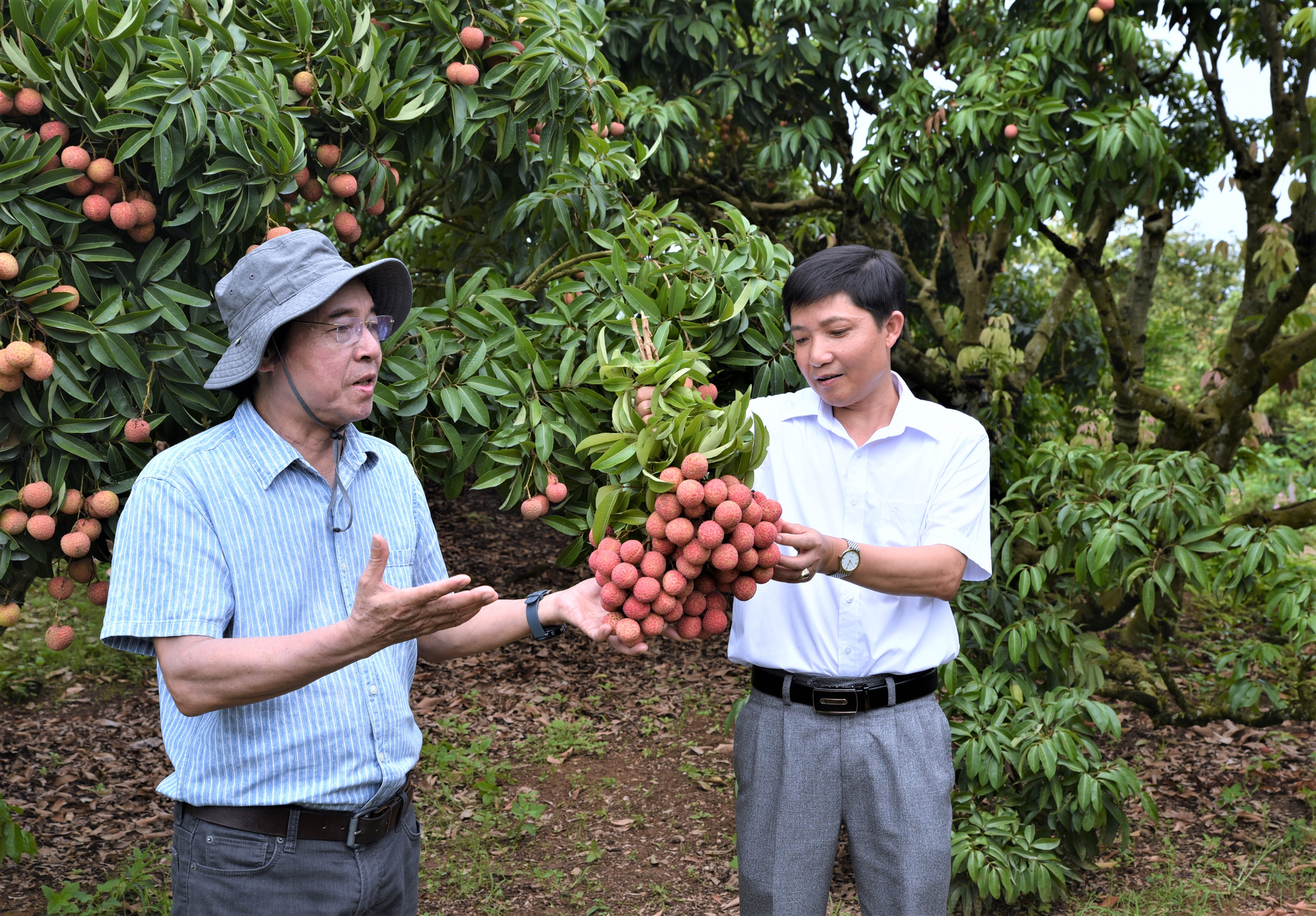
Mr. Dang Van Tang (right), Director of the Bac Giang province's Sub-Department of Crop Production and Plant Protection, will continue to develop the organic lychee production model. Photo: Pham Hieu.
This year's yield from the organic lychee production model in Quy Son commune, Luc Ngan district was qualified for export to fastidious markets in terms of quality and design. Namely, the sweetness of this lychee product reaches 21 degrees brix compared to the standard requirement of 19; the lychee has an appealing look and hard shell.
The multi-residue analysis performed by Bac Giang province's Sub-Department of Crop Production and Plant Protection showed that this lychee product is qualified for export to various markets such as the EU, the United States, Japan, etc.
“Luc Ngan lychee brand has been gaining popularity over the years. We have concluded that developing eco-tourism and community-based tourism in organic lychee farms will bring considerable value and income for farmers. This year, the province saw many visitors who came to experience ecotourism services and harvest directly at lychee farms. As a result, lychee farmers can focus on production without having to worry about output", said Mr. Dang Van Tang.

This year's yield from the organic lychee production model in Quy Son commune, Luc Ngan district was qualified for export to fastidious markets in terms of quality and design. Photo: Pham Hieu.
Mr. Pham Tien Dung, Director of Pham Gia Thai Binh Import-Export Company - a company with extensive experience in exporting lychee to Japan, has high expectations for organically produced lychee.
“Japanese consumers favor Vietnamese lychees over those from other neighboring countries in the region. I hope that farmers in Luc Ngan will continue to expand the production of organic lychee to meet the requirements for exporting to Japan. This will advertise this specialty fruit to Japanese consumers as well as Vietnamese expatriates residing in Japan", said Mr. Pham Tien Dung.
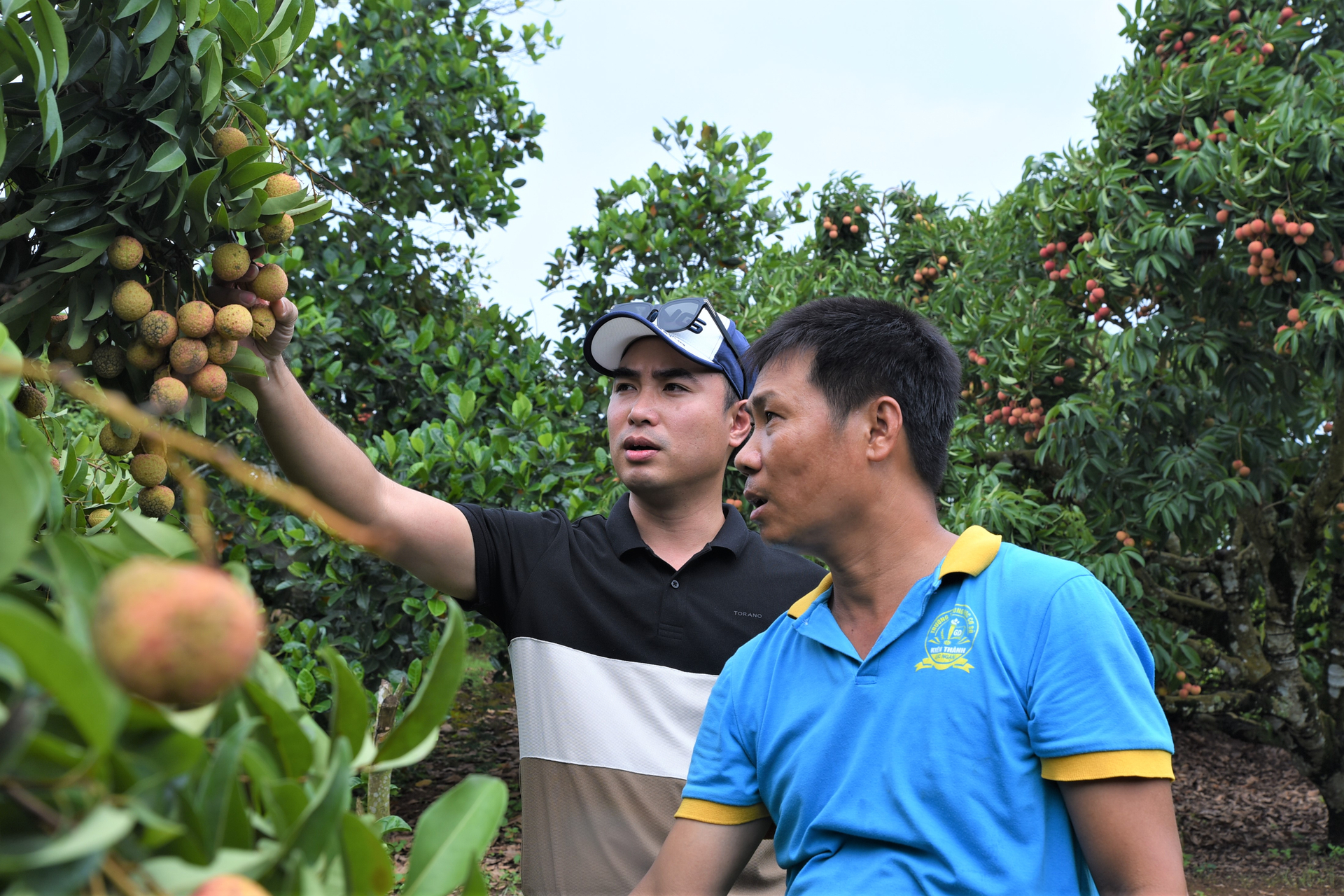
Mr. Pham Tien Dung (left) has high expectations for the organic lychee production model in Quy Son commune, Luc Ngan district, Bac Giang province. Photo: Pham Hieu.
The absence of pesticide residues and the size of the lychee fruit are, in Mr. Pham Tien Dung's opinion, the two most critical technical requirements for export to the Japanese market.
According to Mr. Dung, the organic lychee farm in Quy Son commune, Luc Ngan district is situated away from other inorganic lychee farms in order to protect it from pesticide residues. Additionally, the province's Sub-Department of Crop Production and Plant Protection and New AG Technologies Vietnam have provided farmers with detailed instructions to ensure organic production process.
Regarding other criteria for lychee export to Japan, the average size must be between 28 and 32 fruits per one kilogram; the diameter must be larger than 2.5 centimeters; the sweetness must be over 18 degrees brix.
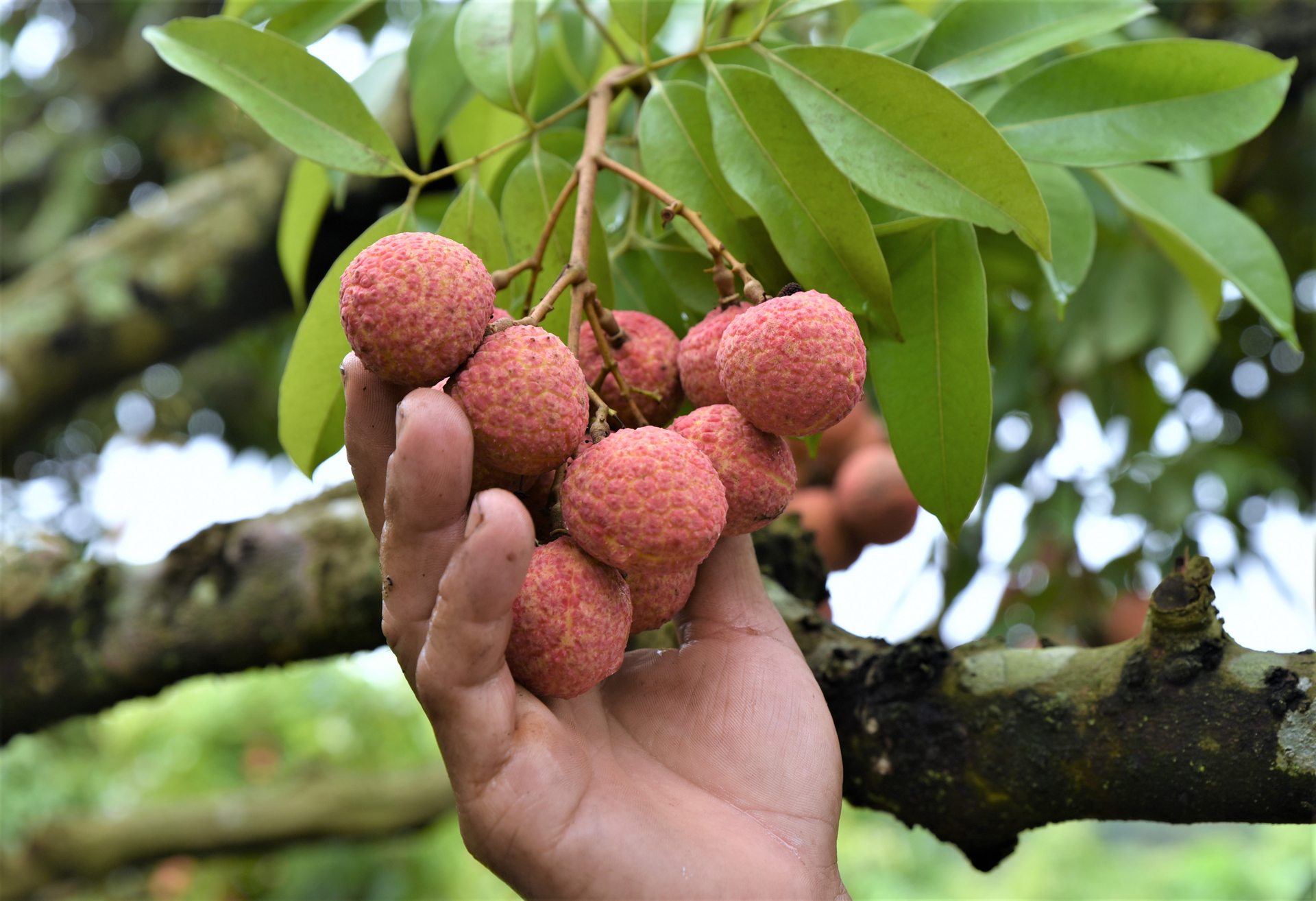
The absence of pesticide residues and the size of the lychee fruit are the two most critical technical requirements for export to the Japanese market. Photo: Pham Hieu.
Japan formally permitted the import of Vietnamese lychee from December 15, 2019. During the years 2020, 2021 and 2022, Vietnamese fresh lychee thrived in the Japanese market with the export volume reaching approximately 40 tons within the first year; increasing sharply in the following years, and reaching 300 to 400 tons.
Vietnamese lychees have won the hearts of many Japanese consumers as well as the large community of Vietnamese people living, studying and working in Japan. Thanks to the assurance of food hygiene and safety, Vietnamese fresh lychees are being sold in Japan for 18 to 20 USD per kilogram, or more than 400,000 VND per kilogram.
Translated by Nguyen Hai Long
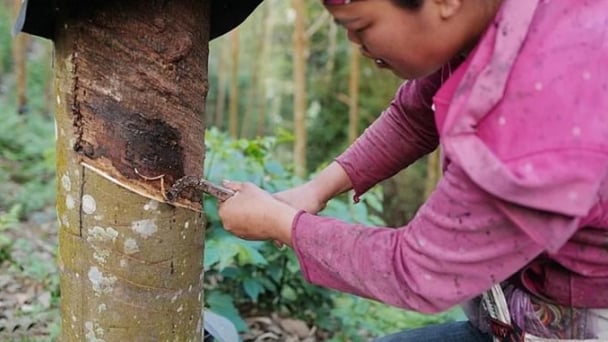
(VAN) Rubber prices on May 28, 2025 are maintaining an upward trend. Domestic latex prices remain stable, trading in the range of VND 397 to VND 462/TSC.
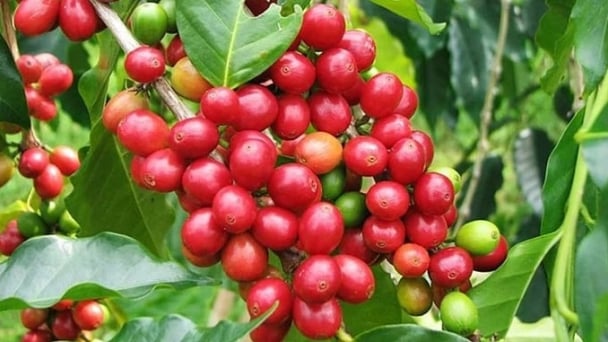
(VAN) Coffee prices on May 28, 2025, show mixed movements. Domestically, prices dropped sharply by VND 1,600, trading at VND 121,700 – VND 122,200/kg.
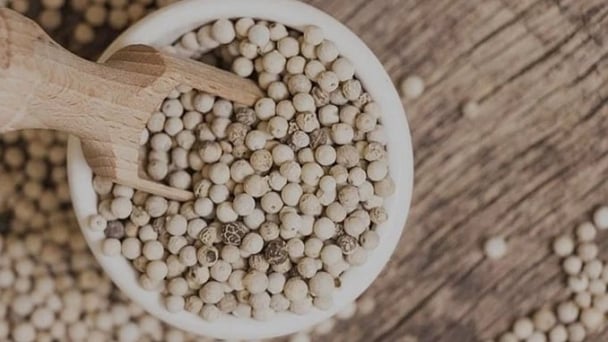
(VAN) Pepper prices on May 28, 2025, remained unchanged globally. Domestic pepper prices have increased by VND 1,500, trading at VND 147,000 – VND 148,000/kg.
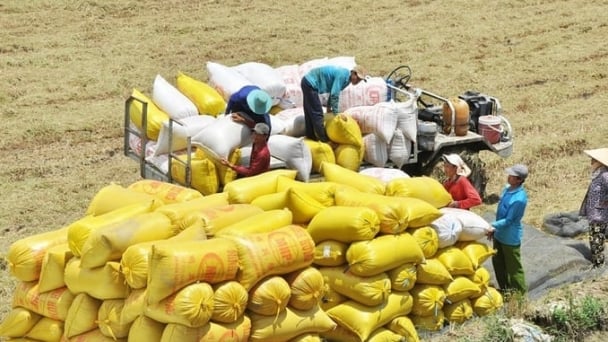
(VAN) Rice prices on May 27, 2025, show no new changes for both paddy and milled rice. Meanwhile, Vietnam’s export rice prices continue to remain flat.
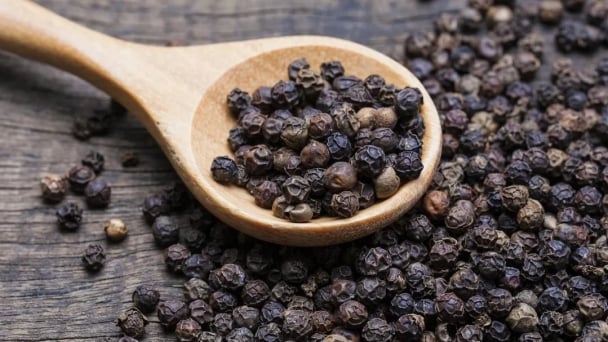
(VAN) Pepper prices on May 27, 2025, recorded a slight increase in Indonesia, while domestic prices remain stable, trading at VND 146,000 to VND 147,000/kg.
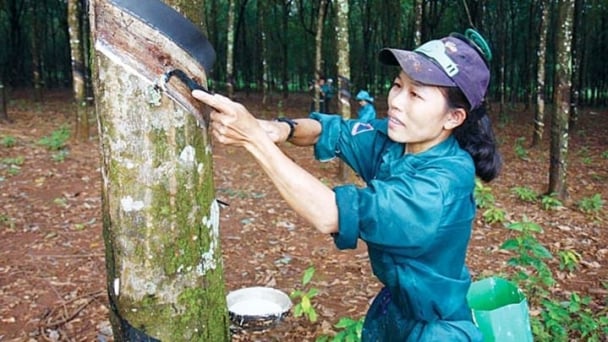
(VAN) Rubber prices on May 27, 2025, are fluctuating sharply today. Domestic latex prices continue to trade around the range of VND 397 to VND 462/TSC.
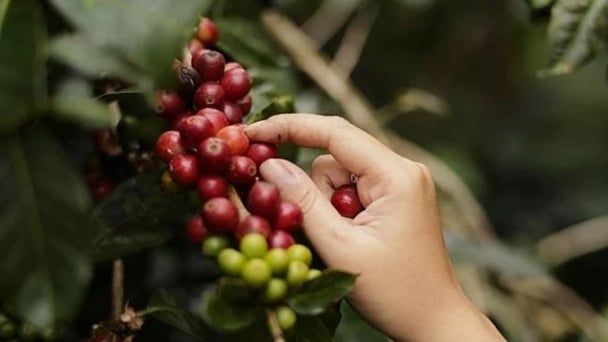
(VAN) Coffee prices on May 27, 2025, continue to remain flat. Domestic coffee market is still trading around the range of VND 122,000 to VND 122,500/kg.